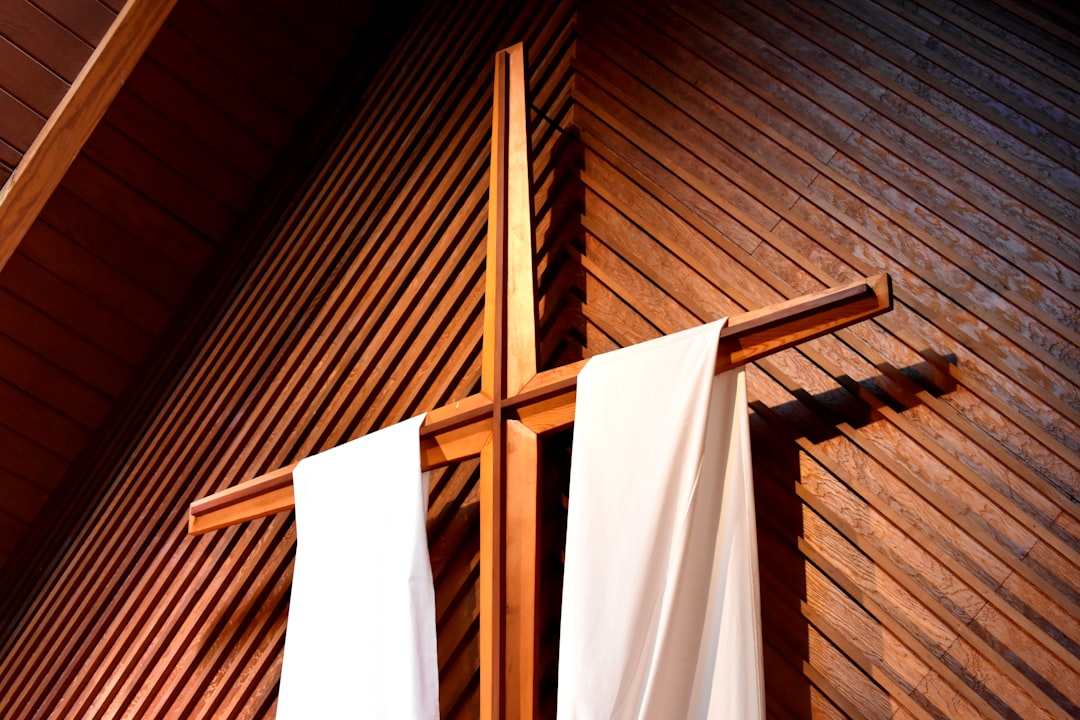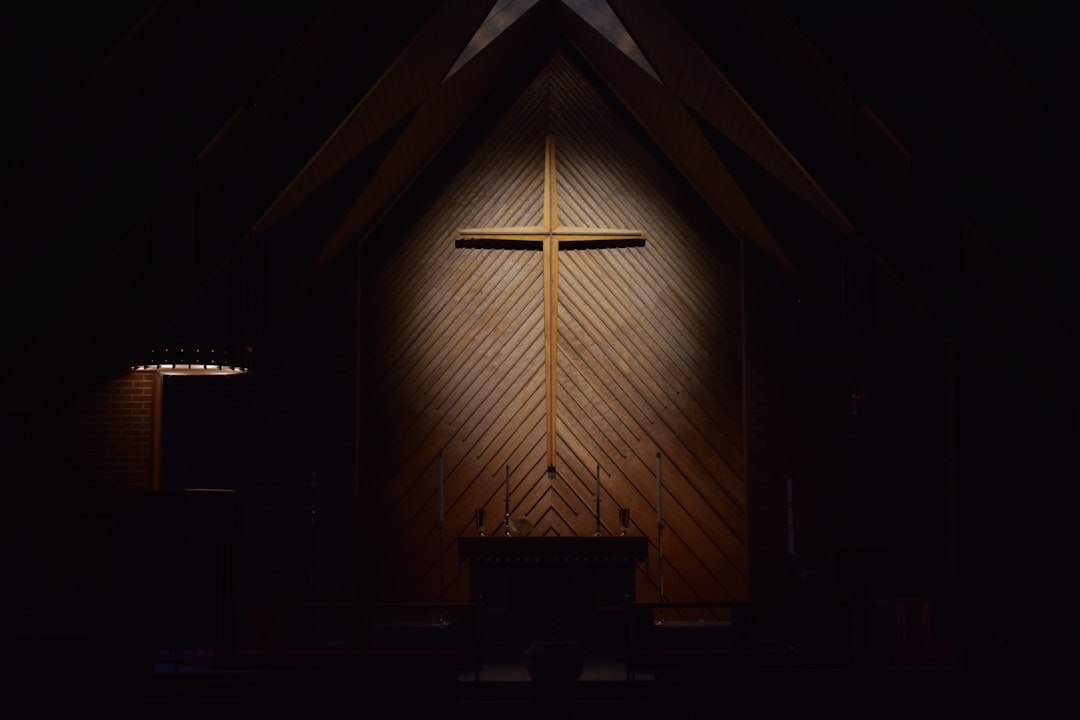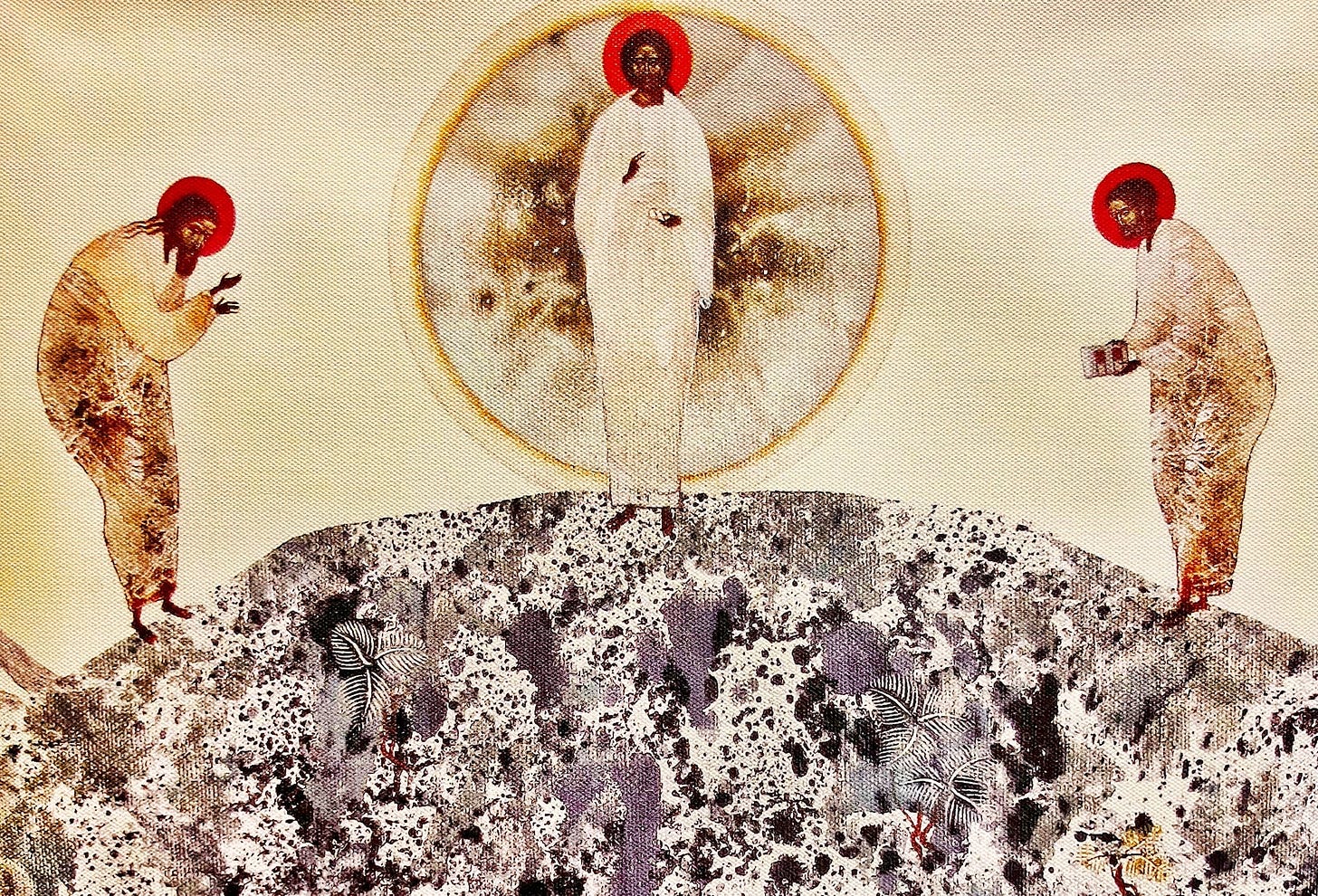Matthew 6.10
Your kingdom come. Your will be done, on earth as it is in heaven.
Matthew 22.2-10
The kingdom of heaven may be compared to a king who gave a wedding banquet for his son. He sent his slaves to call those who had been invited to the wedding banquet, but they would not come. Again he sent other slaves, saying, “Tell those who have been invited: Look, I have prepared my dinner, my oxen and my fat calves have been slaughtered, and everything is ready; come to the wedding banquet.” But they made light of it and went away, one to his farm, another to his business, while the rest seized his slaves, maltreated them, and killed them. The king was enraged. He sent his troops, destroyed those murderers, and burned their city. Then he said to his slaves, “The wedding is ready, but those invited were not worthy. Go therefore into the main streets, and invite everyone you find to the wedding banquet.” Those slaves went out into the streets and gathered all whom they found, both good and bad; so the wedding hall was filled with guests.https://open.spotify.com/embed/episode/0witHZzJ5Te8lxO7mV8mEs
Don’t mix politics and religion.
That’s the etiquette maxim for church, dinner parties, and just about every other part of our lives. We’re told, again and again, to keep these seemingly incompatible things as far away from one another as possible. Whatever political proclivities we hold and whatever it is we believe, they are meant to remain in the private sphere and no one has any right to interfere with either.
Except, we confuse them all the time!
We blur the line between church and state with such reckless abandon that we don’t even notice that we’re doing it. We view (and judge) one another through the names on our bumper stickers rather than the name that is above all names, we act as if what happens on a certain Tuesday in November is more important and more determinative than what happen in church every Sunday, and we tend to get all worked up over who sits behind the desk in the oval office rather than rejoicing over the one who rules from the arms of the cross.
Oddly, the so-called Separation of Church and State actually looks more like an extremely tumultuous marriage in which neither partner knows why they are still together.
And, honestly, it’s not even our fault.
We get to blame this on Jesus.
“Listen,” Jesus says, “when you pray, pray like this: Our Father in heaven, hallowed be your name.”
That’s good and fine and tame. No one is going to squirm around in their pews or lose sleep over words like those. But then listen to what Jesus prays next:
“Your kingdom come, your will be done, on earth as it is in heaven.”
Woah, woah, woah. Politics have crept into the Lord’s Prayer!
Here we are, minding our own business, talking about God and heaven and holiness and then boom – we arrive in the middle of a political argument about a kingdom, transferred from one place to another, that calls into question all the things we think rule the world.
That’s the great wonder, and the great challenge, of the Lord’s Prayer – we’ve said it so many times in so many places with so many people that we no longer think about what it is we are praying for when we pray.
Let your kingdom come Lord, let your will be done on earth as it is in heaven.
Notice: we don’t pray, “Lord, let my political party finally be in charge for a little bit.” “Lord, watch over this nice little church so that we can knock out the competition across and down the street.” “Lord, please bless this country so that everyone else in the world will start acting like us.”
No, we pray, “Lord, let your kingdom come! Let your will be done!”

We live in a time in which there is a growing industry for all things spiritual. You can book a spiritual retreat at a spa for the weekend, you can download an app on your phone to connect you with the spiritual realm, you can hire a spiritual guru to guide you in the practices of meditation and transcendence. And all of that’s fine, some of it might even be Christian.
But, this prayer is a ringing reminder that Christianity is inherently materialistic.
In other words, physical and tactile things matter. Jesus will shortly tell us to pray for bread, not spiritual bliss.
Following the Lord, taking up our crosses, is not simply adhering to a sets of ideas or doctrines. Discipleship is as much about our bellies and our hearts and our politics as it is about our brains. Being Christian is a concrete reality, we might call it an adventure, that has implications for the way we live our lives from what we eat to who we eat with.
But we can save more of the bread talk for next week.
Suffice it to say, this petition in the Lord’s Prayer is what the whole prayer hinges on. Or, as Hauerwas and Willimon put it, calling for God’s kingdom is the reminder that this prayer is not for getting what we want but rather for bending our wants toward what God wants.
It’s about praying for God’s kingdom, rather than our own.
But what does this kingdom we pray for look like? What, exactly, are we praying for?
Jesus, thankfully, talks a lot about the kingdom of God, in fact he talks about it more than anything else. And when he does, he does so with hints and hidden glimpses, parables and puzzles, rather than with definitions and exposition.
Jesus proclaims the kingdom instead of explaining it.
Subscribed
The Kingdom of God is like… a mustard seed, a fig tree in need of manure, a field of wheat and weeds.
The Kingdom of God is like a wealthy man who gives away all his wealth to his slaves and then abruptly leaves town.
The Kingdom of God is like a farmer who starts throwing seed every which way without caring, at all, whether it lands on soil, among the thorns, or even on the sidewalk.
The Kingdom of God is like a Vacation Bible School volunteer who, when responsible for 15 kids, lost 1 and left behind the 14 in order to go find the one who was lost.
But the Kingdom of God is also more than the stories Jesus told, the kingdom is visible in him and the way he lived. Jesus is forever reaching out to the last, least, lost, little, and dead, bringing hope to the hopeless, offering mercy to the wretched, and grace to those in disgrace.

We know about the kingdom we pray for because we know Jesus Christ.
And, of course, Jesus’ kingdom looks nothing like the kingdoms of the world.
For, the kingdoms of the world are run by power and fear, constantly deciding who is in and who is out, and they crumble with the arrival of every new kingdom.
But God’s kingdom obliterates all of the world’s means of deciding who is in and who is out. When we say something like, the kingdom of God is for all, we mean it. We mean it because the kingdom is the most inclusive thing in the cosmos. It is inclusive because Christ draws all into himself when he mounts the hard wood of the cross, it is inclusive because Christ comes not to condemn the world but to save the world, it is inclusive because Christ brings the Good News to those who need it: namely, everyone.
All the divisions in life that cause us grief – rich and poor, Republican and Democrat, UVA and VA Tech, those divisions are overcome in the kingdom of God. That’s not to say that those distinctions don’t have meaning, they merely lose their power over us in the reckless inclusivity of the Kingdom.
To pray “Your kingdom come” is to be willing to become part of a rather weird gathering of motley, mediocre, and messy people who were once considered outsiders but who have discovered their insiderness in Jesus.
And yet, we pray for God’s kingdom to come because it is not yet here in its fullness. It’s the whole “already but not yet” thing. To be Christian is to be unsatisfied with the status quo, with how things are.
We are unsatisfied because our faith is eschatological. That is, we are a people who insist on leaning into God’s future.
However, that’s doesn’t mean we’re just standing around on our tiptops hoping to catch a glimpse of the ever arriving day after tomorrow – to pray this prayer means we are already participating in that strange and wondrous future.
We Christians are a people who live outside of time. We gather together to read words from the past that give us an assurance of a future that allows us to live differently now.
We know how the story ends which means we are clued in to how God’s future, what we call the kingdom, is already in-breaking with the present.
That’s why we do such wild and wondrous things like loving our enemies, and befriending the friendless, and feeding the hungry. We live that way because each of those things are foretastes of the kingdom made possible and manifest in Jesus. And, at the same time, we can do the wild and wondrous thing we are doing right now: worship.
Do you see? In a world as broken and backward as ours, we can take the time to have a party, a party we call worship. Part of our faith is the gift of grace to let loose and celebrate each Sunday.
Listen – The Kingdom of God is like a king who gave a banquet for his son. He sent his slaves out to go collect the invited guests with descriptions of all the lavish preparations for the party. But each of the invitees had an excuse for missing out on the party, they were either too busy, too indifferent, or too agitated to take the time to let loose and have fun.
But this king was no ordinary king. Nothing could stop his party. So he sent his slaves back out again, and this time he ordered them to drag in people off the street, the nobodies and the lowly, bring them all in, the good and the bad, so long as the place was packed to the brim.
Therefore, the kingdom we pray for every time we pray as Jesus taught us, it is both political and it is a party. It has ramifications for how we live and move and have our being. But it’s also fun.
Last weekend our church was decked out for Winter Vacation Bible School where we were out to solve the mysteries of the kingdom. We had Rec in Memorial Hall, Science upstairs along with Crafts, we had Music with Mr. D, and story time with the Reverend Detective here in the sanctuary. The kids would saunter in with their little magnifying glasses and we would always start with finding a story in the altar bible but, of course, the Bible was missing every time they walked in so the kids would have to run around the sanctuary in search of the scriptures.
After doing it three different times, one of our Preschool age kids said, “Pastor Taylor, you have got to be more careful with that Bible!”
It was a great and riotous weekend with the kids running all over this building. But for me, above all the stations and even the scripture stories, my favorite moment came when, on Saturday, it was all said and done, a set of parents came in to pick up their kids and they asked, “How was it?” And their son shouted, “I HAD SO MUCH FUN!”
That’s the kingdom of God that we pray for.
And it’s not out there somewhere else waiting for the right moment to finally show up. That raucous kingdom is already here, in ways seen and unseen, and it is worth our celebration.
Or, as Robert Capon so wonderfully put it…
“God is not our mother-in-law, come to see whether her wedding-present china has been chipped. God is a funny Old Uncle who shows up, unannounced, and uninvited, with a salami under one arm and a bottle of wine under the other.”
The Lord comes to start the party we call the Supper of the Lamb, the party we catch glimpses of every week, the party to which we are invited even though we don’t deserve it.
And so, every time we pray the Lord’s Prayer, every time we eat and drink the Lord’s Supper with Jesus, we live into the reality of Jesus’ kingdom we pray for.
God’s kingdom is a bunch of people like us, good and bad and everything in between, eating and drinking and having fun with Jesus.
That’s the future we lean into whenever we pray the Lord’s Prayer. Amen.








